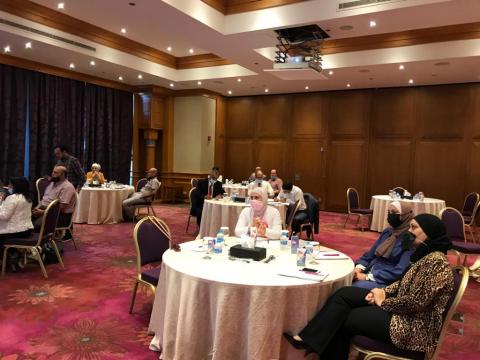

On Wednesday, the Supreme Population Council held the first workshop to build the capacity of National Population Strategy Association Officers (2021-2030) of relevant national institutions on the indicators contained in the draft strategy.
The aim of the two-day workshop was to introduce the association officers to the indicators of the draft national population strategy (2021-2030), the tag of each indicator, the data source, the calculation mechanism, and the periodic values of the indicator, thus the Board could carry out the follow-up and evaluation process with a participatory understanding.
The Director of Programs of the Higher Council of Population, Dr. Sawsan Al-Daja, stated that the draft strategy had been prepared in a participatory approach with national institutions dealing with population and development issues and that it was a basic reference document covering the results, outputs, and indicators that Jordan aspired to achieve in cooperation with all partners at the sectoral and national levels, thereby contributing to the harmonization of population growth, resources, and overall development by facilitating the realization and investment of population opportunity, where population dynamics affected (Births, deaths, and migration) and associated outputs (population size, age structure, and distribution) to all aspects of development.
She noted that The National Population Strategy for the years 2021-2030 had been built along four pillars: Health & reproductive and sexual health, socioeconomic, women and youth, migration, asylum, and crisis.
Dr.Sawsan explained that The Strategy's conceptual framework was based on the theory of change, which shows how a set of results are linked in the short and medium-term in preparation for a long-term goal.
Moreover, The Strategy's follow-up and evaluation methodology have been developed so that the follow-up process allows planners and policymakers in the Hashemite Kingdom of Jordan to assess the effectiveness of the means and methods used to identify and define progress in achieving the Goals, thereby contributing to the development and sustainability of the impact of those policies and programs and the exchange of experience among different sectors and institutions.







